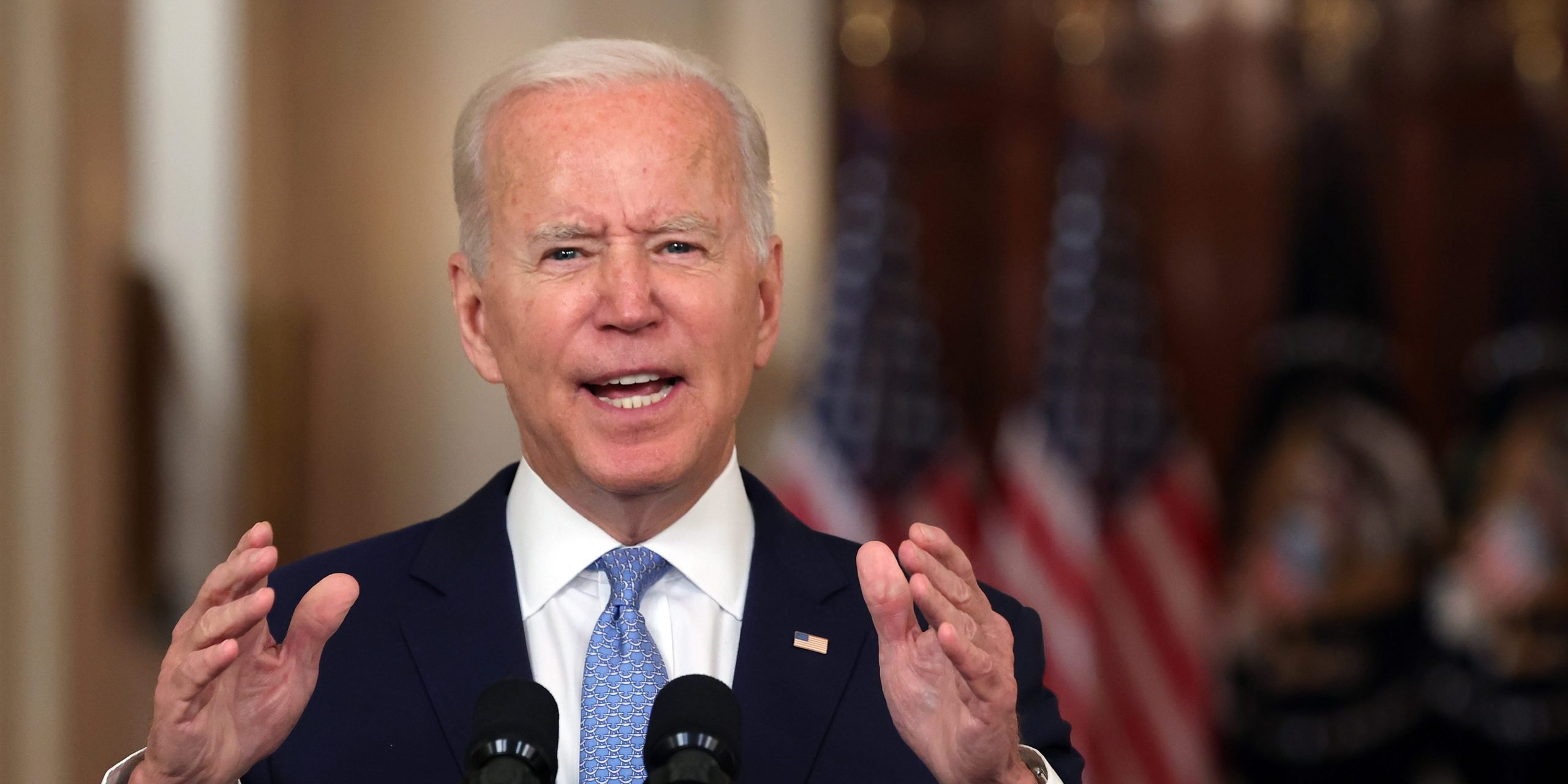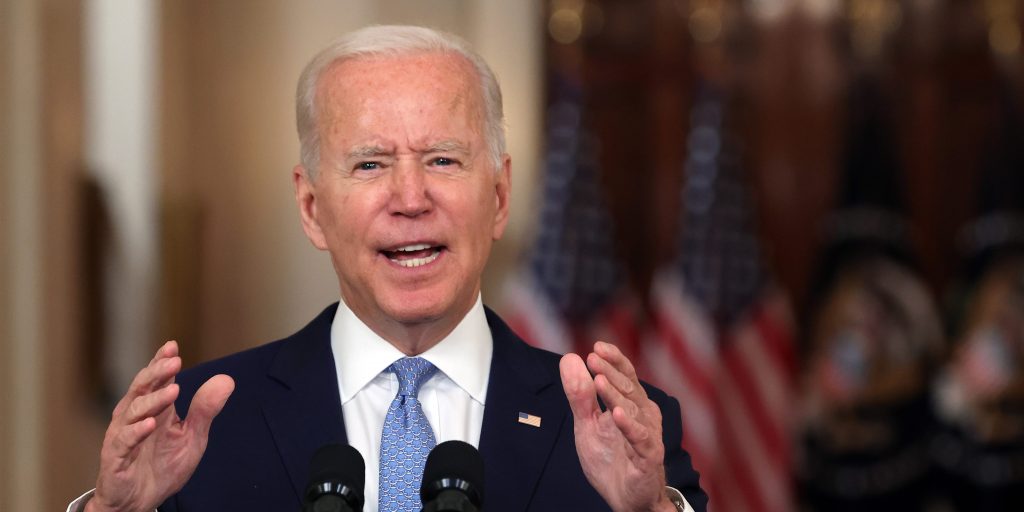
Chip Somodevilla/Getty Images
- Biden wants a clash with corporations, but Senate Democrats may not line up behind him.
- Some want to scale back the degree of his tax increases on large businesses.
- A pair of lobbyists – both former Senate Democrats – want to scrap a key part of the Biden tax plan.
- See more stories on Insider's business page.
President Joe Biden's message hasn't strayed from his presidential campaign. He wants the largest corporations to finance the bulk of his economic agenda, intended to assault inequality and level the playing field for Americans.
"It's time for working families, the folks who built this country, to have their taxes cut," Biden said on Friday. "And those corporate interests doing everything they can to find allies in Congress to keep that from happening … I'm going to take them on."
He also ripped into 55 large companies that paid no federal income taxes in 2020, per a report from the left-leaning Institute on Taxation and Economic Policy. Those firms who paid nothing included household names like FedEx and Nike.
Meanwhile, others like Disney are scrambling to kill his proposed tax increases on Capitol Hill.
Biden struck an aggressive tone, picking a fight with large firms as Democrats attempt to meet a key deadline to pass his $3.5 trillion spending plan by September 27. A dozen House committees are drafting their parts of the bill, which will include paid family and medical leave, expanded Medicare benefits, housing aid, and a renewal of the Biden child allowance.
But swaths of Biden's domestic agenda have begun to crash into resistance from moderate Sens. Joe Manchin of West Virginia and Kyrsten Sinema of Arizona. Manchin called for a "strategic pause" last week and said he could not support such a large package. Sinema did as well last month.
A pair of former Senate Democrats who are now powerful lobbyists, Max Baucus and Heidi Heitkamp, are urging their former colleagues to preserve the "step-up basis," a tax loophole tilted toward wealthy Americans who pass onto heirs assets that grew in value during their lifetimes. Their heirs don't have to pay taxes on the received assets. Already, Sen. Jon Tester of Montana, which happens to be Baucus's home state, has already expressed reluctance to eliminating the step-up basis.
"The whole process is going to be ugly as hell, the likes of which I'm not sure DC has seen in years," Jim Manley, a former senior aide to onetime Senate Majority Leader Harry Reid, a Democrat, told Insider. "How messy the tax provisions will be remains to be seen, but it depends how big of a reconciliation bill is proposed."
Senate Democrats aren't likely to adopt the Biden plan in full and instead will make revisions of their own. Sen. Ron Wyden, chair of the Finance Committee, said on Thursday that Democrats will be able to completely finance a package, regardless of its size.
"We will have an expansive menu of revenue options for the caucus to choose from," he told Insider. "My bottom line is we'll be able to pay for the priorities the caucus supports."
Insider obtained a copy of the tax increases Democrats are weighing. They include reining in supercharged CEO pay, targeting stock buybacks, and taxing capital gains - the growth in value for assets like stock between their purchasing date and when they're sold - equivalent to ordinary income. Bloomberg first reported the story.
Earlier this year, Biden laid out a wide-ranging tax plan which included:
- Raising corporate taxes to 28% from 21%
- Increasing the top individual income tax rate to 39% from 37%
- Taxing unrealized capital gains at death
The corporate and individual income tax rate increases would partially roll back President Donald Trump's tax law.
Some Democrats are reluctant to increase taxes that much, warning it could damage the ability of American companies to compete. Both Manchin and Sen. Mark Warner of Virginia favor a smaller corporate tax hike, and both say they could back a 25% rate instead. If that ends up being the compromise, it would likely mean a smaller spending package, because Biden and Democrats have both largely said they want to fully pay for their spending.
It remains to be seen whether Senate Democrats can approve and draft the reconciliation bill by the end of the month. But they're still supportive of Senate Majority Leader Chuck Schumer's efforts to maneuver around a 50-50 Senate.
"It's worked so far, Sen. Tammy Duckworth of Illinois told reporters on Tuesday. "It's not always been the prettiest process, but that's Democrats."

